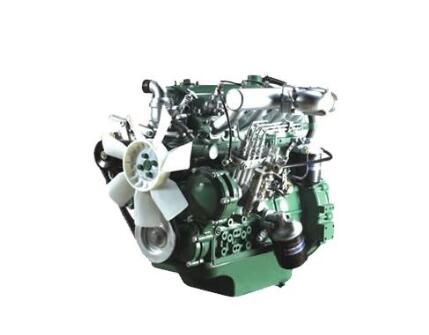Vehicle engines have come a long way since the early days of the automobile industry. From rudimentary designs to highly sophisticated powerhouses, the evolution of vehicle engines has been a fascinating journey. In this article, we will explore the major milestones in engine development and how they have shaped the automotive landscape.
The Birth of the Internal Combustion Engine:
The internal combustion engine (ICE) revolutionized the transportation industry. In the late 19th century, inventors like Karl Benz and Gottlieb Daimler pioneered the development of reliable gasoline-powered engines. These early ICEs relied on a four-stroke cycle, consisting of intake, compression, combustion, and exhaust, which laid the foundation for future engine designs.
Mass Production and the V8 Era:
Henry Ford's implementation of assembly line production techniques in the early 20th century led to the mass production of automobiles. During this time, the V8 engine gained popularity. Known for its power and smooth operation, the V8 engine became a symbol of performance and luxury. Automakers like Ford and Chevrolet popularized this engine configuration, making it a staple in American automotive history.

Turbocharging and Fuel Efficiency:
As concerns about fuel efficiency and environmental impact grew, engineers turned to turbocharging technology. Turbochargers utilize the exhaust gases to drive a turbine, which compresses the intake air, resulting in increased power output. Turbocharged engines offered a balance between performance and fuel efficiency, making them popular in both sports cars and economy vehicles.
Hybrid and Electric Powertrains:
The 21st century witnessed a surge in hybrid and electric vehicles. Hybrid engines combine an internal combustion engine with an electric motor to improve fuel economy and reduce emissions. Electric vehicles (EVs) entirely rely on electric motors powered by rechargeable batteries. These alternative powertrains aim to reduce dependency on fossil fuels and mitigate the environmental impact of transportation.
Advancements in Efficiency and Performance:
Recent years have seen significant advancements in engine efficiency and performance. Direct fuel injection, variable valve timing, and cylinder deactivation technologies have improved fuel economy while maintaining power output. Furthermore, advancements in materials and manufacturing techniques have allowed engines to be lighter, more compact, and durable.
Conclusion:
The evolution of vehicle engines has been a story of continuous innovation and improvement. From the early internal combustion engines to the rise of hybrid and electric powertrains, each phase has contributed to the development of more efficient, powerful, and environmentally friendly engines. As we move forward, the automotive industry will continue to push the boundaries of engine technology, driving us towards a greener and more sustainable future.
Copyright:@2020-2021
Comments Please sign in or sign up to post.
0
0 of 500 characters used